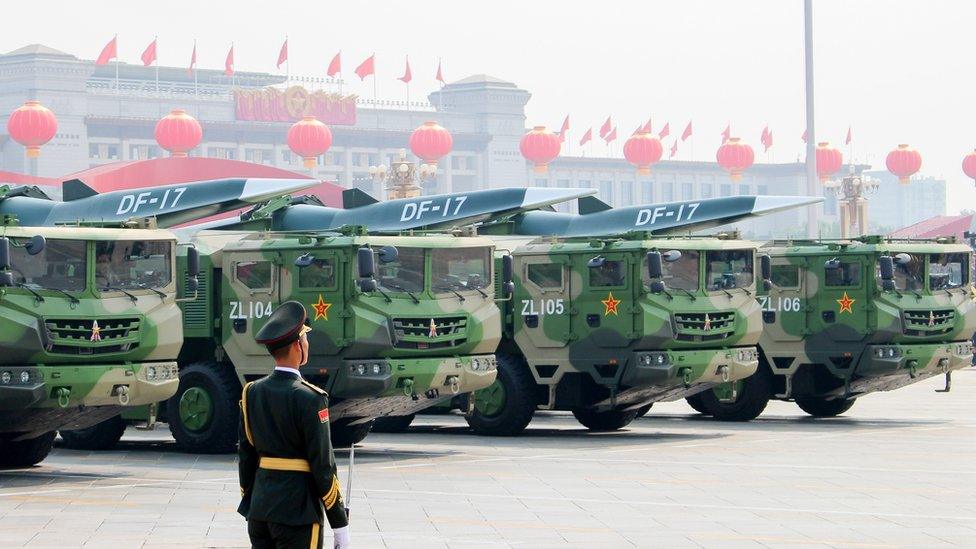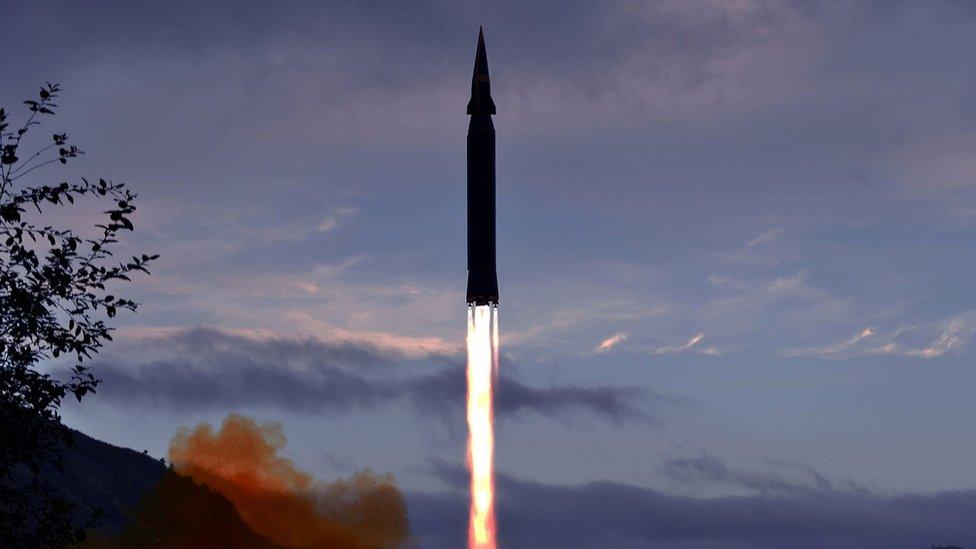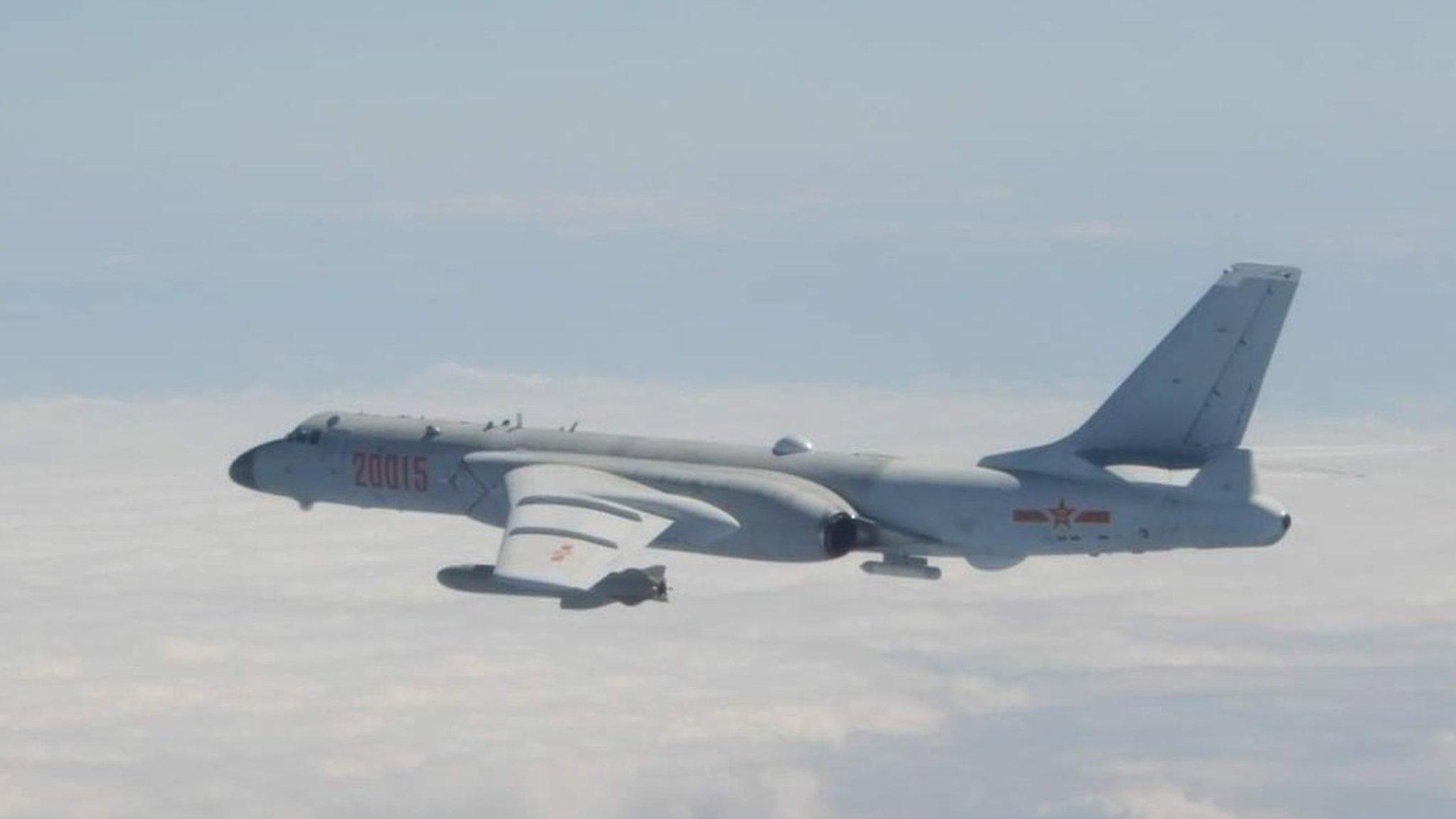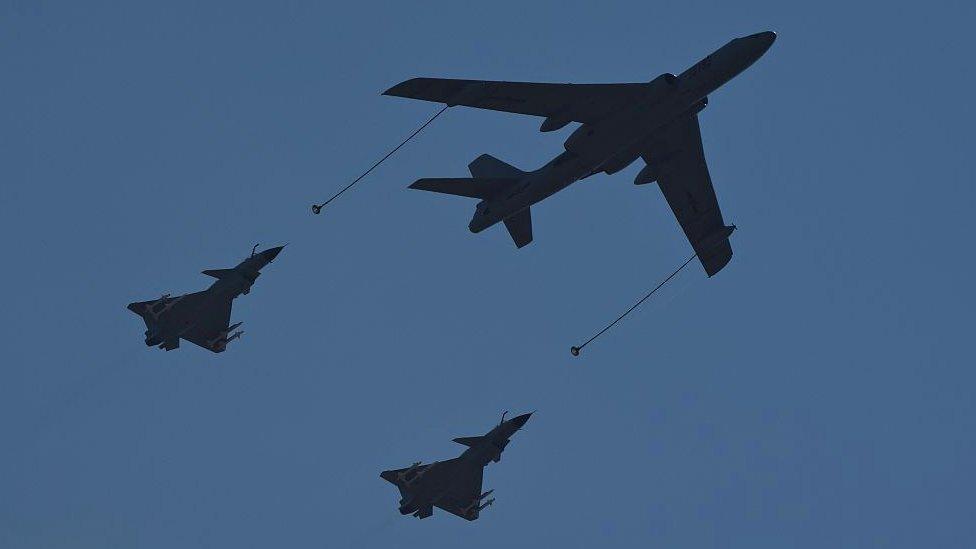China denies testing nuclear-capable hypersonic missile
- Published

China showed a hypersonic missile platform at a recent military parade
China has denied reports that it tested a nuclear-capable hypersonic missile earlier this year, insisting instead that it was a routine spacecraft check.
The initial report in the Financial Times newspaper prompted concern in Washington, where US intelligence was reportedly caught by surprise.
Hypersonic missiles can fly in the upper atmosphere at more than five times the speed of sound.
Concern has been growing around China's nuclear capabilities.
On Monday, foreign ministry spokesman Zhao Lijian told a media briefing that a routine test had been carried out in July to verify different types of reusable spacecraft technology.
"This was not a missile, this was a spacecraft," he said. "This is of great significance for reducing the cost of spacecraft use."
Mr Zhao added that many countries had carried out similar tests in the past. When asked if the Financial Times report was inaccurate, he replied "yes".
The report on Saturday quoted five unnamed sources, external who said a hypersonic missile had been launched in the summer. It flew through low-orbit space before cruising down and narrowly missing its target, the report said.
"The test showed that China had made astounding progress on hypersonic weapons and was far more advanced than US officials realised," the report read.
On Monday, US disarmament ambassador Robert Wood said the US was "very concerned", adding that Washington "had held back from pursuing military applications for this technology".
However, he said both China and Russia had been "very actively" pursuing military uses, which meant the US "having to respond in kind".
"We just don't know how we can defend against that technology, neither does China, neither does Russia," he told reporters in Geneva.
Earlier, Mike Gallagher, a Republican member of the House Armed Services Committee, had warned that if Washington stuck to its current approach it would lose a new Cold War with China within a decade.
Relations between the US and China are tense, with Beijing accusing President Joe Biden's administration of being hostile.
A number of Western countries have also expressed concern at China's recent displays of military might.
How powerful is China's military?
Michael Shoebridge, the director of defence, strategy and national security at the Australian Strategic Policy Institute, said if a hypersonic missile had been tested it would fit a "pattern of escalation in nuclear and other strike weapons".
"I don't think it's more significant than China's growing missile silos or air launch nuclear weapons or new submarine nuclear weapons," he said. "But it fits a pattern of increasing capability [without] transparency."
"Transparency is an alien concept for Beijing's strategic thinkers," he added.
China displayed what appeared to be a hypersonic missile platform at a recent military display.
Along with China, the US, Russia and at least five other countries are working on hypersonic missile technology.
Last month, North Korea said it had successfully tested a new hypersonic missile. And in July, Russia made a similar announcement and said its missile had been launched from a frigate in the White Sea.
- Published29 September 2021

- Published6 October 2021

- Published5 October 2021

- Published20 March 2021
